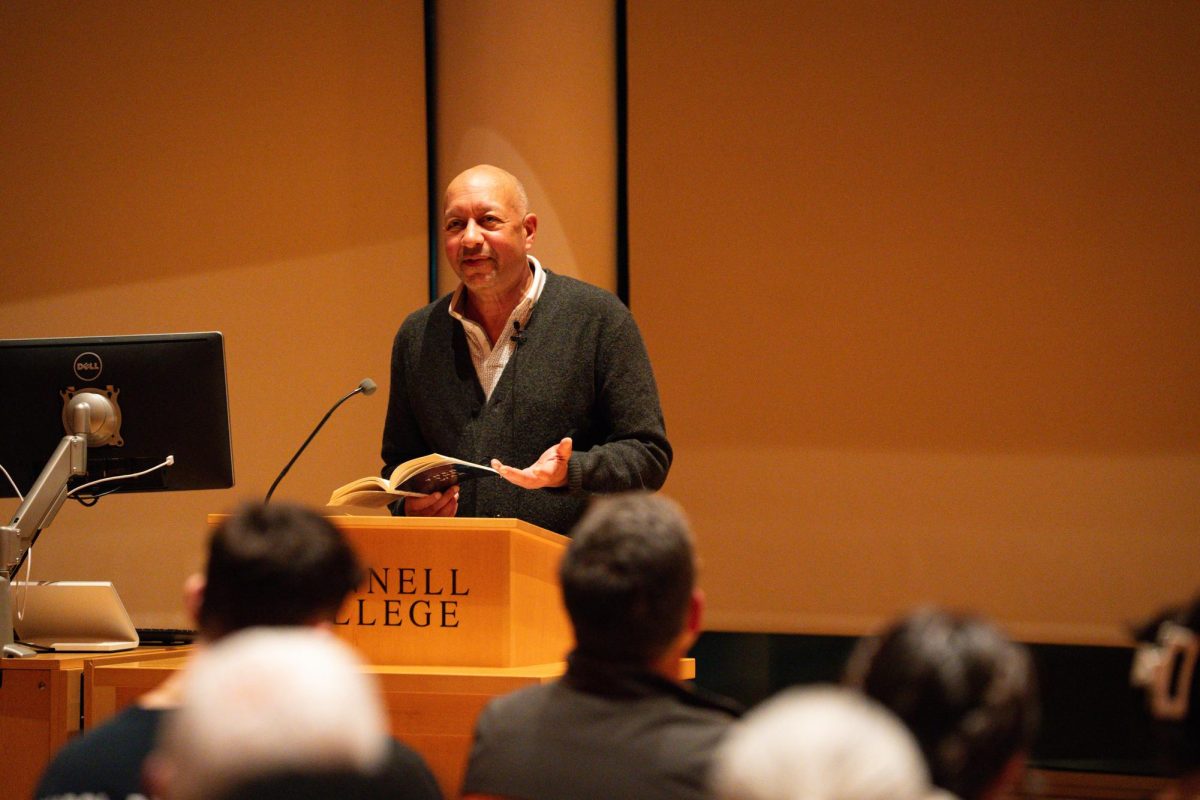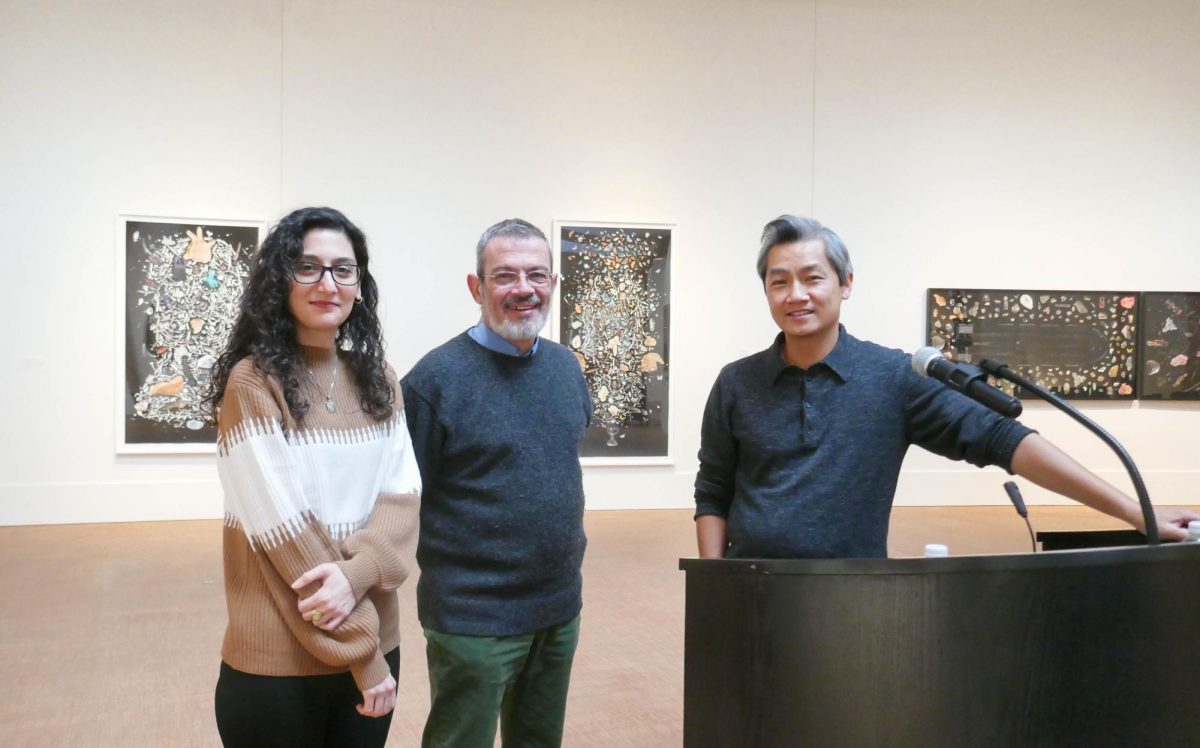On Wednesday, Feb. 6, Professor John Garrison, English, spoke about his new book, “Shakespeare and the Afterlife” at the first “Writers @ Grinnell” event of spring semester.
The book examines depictions of the afterlife in William Shakespeare’s works, or, in other words, how the bard imagined what happens after death. Each chapter begins with a survey of several different works on a particular theme and ends with extended analysis of a particular case study.
Professor Garrison stated that even though most people are familiar with the ghosts in Shakespeare’s plays, his texts also depict other types of otherworldly characters and visions of heaven and hell that are quite startling for Shakespeare’s cultural context.
Four years ago, Garrison received a grant from the National Endowment for the Humanities to teach a course on an enduring question: What happens after death? He taught the course as a first-year seminar. The goal of the course, according to Garrison, was to think about how a particular culture’s belief about the afterlife reflects that culture itself.
“It was really from that grant and that course that I realized that there was a book’s worth of material to talk about,” Garrison said.
In order to write the book, Garrison reread all of Shakespeare’s plays and poems and researched their cultural context. Garrison looked at a variety of materials from the renaissance: handbooks for clergy who were dealing with the dying, diaries of people for whom death was impending, sermons and depictions of heaven and hell.
“I would see something in a manuscript and I would realize it echoed very closely from one of Shakespeare’s plays, so as soon as I saw that I started writing about the connection,” he said.
The book came to fruition organically as Garrison moved back and forth between the cultural context in which Shakespeare was writing and the texts themselves.
“Shakespeare and the Afterlife” was released by Oxford University Press simultaneously in hardback, paperback and as an audiobook narrated by actor Steven Crossley. Garrison, who has not read or opened the book in fear of encountering a typo, stated that he felt he was particularly lucky to have the audiobook format.
“Since Shakespeare is so auditory, and [since] what we think of as Shakespeare’s appeal is the beauty of his language, I think it really helps the book come alive to have it read aloud,” Garrison said.
Garrison stated that writing the book reinvigorated his attitude towards Shakespeare and helped him rediscover plays that he wouldn’t have normally considered teaching. Garrison stated that it was a departure to think about theology or religious elements in Shakespeare’s work — his previous work had analyzed Shakespeare’s relationship to the peace movement.
Early on, Garrison decided to study Shakespeare because he realized the immensity of the Bard’s influence in all different kinds of discourses: political, historical, economic and medical. He asserts that Shakespeare is often the origin point for a particular word, phrase or archetype.
Garrison believes that the study of Shakespeare should continue because his texts are constantly being re-adapted by a diversity of communities and creative artists in such a way that it becomes raw material that comes alive again for different purposes.
“As we think about how to reuse and find new imagery from old things, Shakespeare is often the touchstone that still proves very powerful,” Garrison said.
Garrison is currently working on a book focused on Shakespeare’s sonnets and the way memory operates within them.



































































